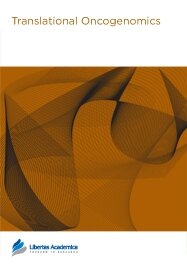

Publication Date: 23 Jul 2007
Journal: Translational Oncogenomics
Citation: Translational Oncogenomics 2007:2 85-97

Urokinase-type plasminogen activator (uPA) is associated with cancer recurrence where the most evidence comes from studies in breast cancer. According to the European Organization for Research and Treatment of Cancer, uPA is considered one of the most prominent biomarkers for cancer recurrence and therefore new agents are needed to inhibit it. Whether uPA is also expressed in pediatric cancers is yet unknown. If it is then uPA inhibitors might also help children with recurrent cancers. In this study, we addressed whether the integrin-linked kinase inhibitor (ILK), QLT0267, could suppress uPA. We previously showed that uPA expression is maximally inhibited when both the Akt and MAP kinase pathways were blocked which we anticipated can be achieved via QLT0267. In MDA-MB-231 breast cancer cells, QLT0267 blocked signaling through Akt and MAP kinase with a correlative decrease in uPA protein and mRNA, which corresponded to an inhibition of c-Jun phosphorylation. Consistent with these findings, cellular invasion was inhibited with either QLT0267 or with small interfering RNA against ILK. We then questioned whether uPA was commonly expressed in childhood sarcomas and if QLT0267 might be effective in this setting. We determined for the first time that uPA was highly expressed in rhabdomyosarcomas (RMS), but not Ewings sarcomas by screening cell lines (n = 31) and patient samples (n = 200) using Affymetrix microarrays. In alveolar RMS (ARMS) cell lines, QLT0267 blocked cell signaling, uPA production, invasion and ultimately survival. We concluded that QLT0267 blocks the production of uPA providing a new target for the management of recurrent cancers.
PDF (940.20 KB PDF FORMAT)
RIS citation (ENDNOTE, REFERENCE MANAGER, PROCITE, REFWORKS)
BibTex citation (BIBDESK, LATEX)
XML
PMC HTML

As an author of a review published in Translational Oncogenomics, I was impressed by the prompt processing and speed of publication. The entire submission, review and publication process was easy, quick and pleasant. The comments from reviewers and associate editor were high quality, scientifically deep and objective. It was a great pleasure to cooperate with such qualified and friendly team. I highly recommend publication in Libertas Academica journals.
Facebook Google+ Twitter
Pinterest Tumblr YouTube